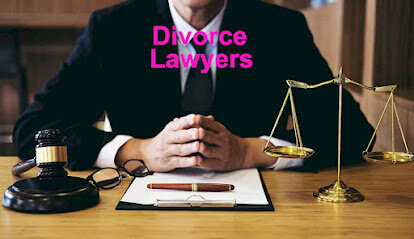Best Creditor Lawyers in New York
Share your needs with us, get contacted by law firms.
Free. Takes 2 min.
Or refine your search by selecting a city:
List of the best lawyers in New York, United States
About Creditor Law in New York, United States
Creditor law in New York concerns the rights and remedies available to individuals or entities (creditors) that are owed money by others (debtors). This area of law covers how creditors can pursue collection of debts, how debtors are protected from unfair practices, and the legal avenues available for resolving disputes or enforcing judgments. New York, as a busy financial center, has developed a robust framework of statutes and court rules guiding both creditors and debtors throughout the collection process. Understanding these rules is essential to protect your financial interests, whether you are seeking to recover money owed or dealing with debt issues.
Why You May Need a Lawyer
There are many scenarios where seeking the advice or representation of a lawyer can be beneficial in creditor matters. Common situations include:
- When you are owed a significant sum of money and attempts to collect have failed
- If a debtor is disputing the amount owed or the validity of the debt
- When you need to understand your options for enforcing a judgment or obtaining a court order
- If a debtor has filed for bankruptcy, affecting your ability to collect
- To ensure compliance with federal and New York state debt collection laws and regulations
- If you are a business regularly extending credit to clients or customers, and need help drafting airtight credit agreements
- When facing accusations of violating the Fair Debt Collection Practices Act or New York equivalent laws
- If a debtor is attempting to hide or transfer assets to avoid payment
A skilled attorney can help you navigate the legal process, increase your chances of recovery, and prevent mistakes that could hurt your position or lead to liability.
Local Laws Overview
New York creditor law is governed by a combination of state statutes, court rules, and federal laws. Key aspects include:
- Statute of Limitations: In New York, creditors have up to six years to sue for most debts, such as written contracts, but some debts may have shorter or longer timeframes.
- Debt Collection Practices: The New York General Business Law and federal Fair Debt Collection Practices Act protect consumers from abusive collection tactics. Harassment, false representation, or contacting third parties about the debt is restricted.
- Enforcing Judgments: Creditors may obtain court judgments and enforce them through wage garnishments, bank levies, or property liens, subject to exemptions that protect certain assets of the debtor.
- Bankruptcy Impacts: Federal bankruptcy law may halt collection activities and limit a creditor's ability to recover, depending on the bankruptcy chapter filed.
- Interest and Fees: New York places limits on the amount of interest and certain fees that can be charged on overdue debts.
- Small Claims and Civil Court Procedures: Procedures for debt collection vary based on the amount involved and the court used. New York's small claims courts are often used for smaller debts.
Understanding these laws helps creditors avoid legal pitfalls and prevents debtors from suffering unfair treatment.
Frequently Asked Questions
What rights do creditors have in New York?
Creditors can attempt to collect on legitimate debts, file a lawsuit to obtain a judgment, and, if successful, enforce the judgment through garnishments, levies, and liens, within the boundaries of state and federal laws.
What is the statute of limitations for debt collection in New York?
The statute of limitations for most debts is six years but may differ for certain types of debts like promissory notes or open accounts.
Can a creditor garnish my wages in New York?
Yes, creditors with a valid court judgment can garnish a percentage of a debtor’s wages, but there are legal limits to how much can be taken.
Are there exemptions that protect a debtor’s property from creditors?
Yes, New York law provides exemptions for certain assets such as a portion of wages, Social Security income, certain retirement assets, and basic household items.
What are the rules around contacting debtors in New York?
Both federal and state laws prohibit harassment, false threats, or contacting debtors at unreasonable times or places. Special restrictions protect consumers from abusive practices.
How does filing for bankruptcy affect creditor rights?
If a debtor files for bankruptcy, an automatic stay is typically imposed, stopping most collection efforts. The outcome for the creditor depends on the type of bankruptcy and the nature of the debt.
Can a creditor charge any interest rate on unpaid debts?
No, New York law caps the maximum legal interest rate on most debts at 16 percent unless a different rate is specified and enforceable by contract.
How can a creditor enforce a judgment in New York?
A creditor with a court judgment may seek wage garnishment, bank account levy, or property liens, depending on the circumstances and available debtor assets.
What can I do if a debtor is transferring assets to avoid paying?
New York law provides remedies for fraudulent transfers, allowing creditors to challenge transfers intended to hinder, delay, or defraud them.
Do I need a lawyer to collect a debt?
While not always required, having legal representation can improve your chances of recovery, ensure legal compliance, and resolve disputes more efficiently.
Additional Resources
For those seeking more information or assistance related to creditor law in New York, consider the following resources:
- New York State Unified Court System: Offers guides on small claims, civil court procedures, and enforcement of judgments
- New York State Attorney General’s Office: Provides consumer and creditor rights information
- Federal Trade Commission (FTC): Oversees the Fair Debt Collection Practices Act
- Legal Aid Societies: Offer free or reduced-cost legal services for qualifying individuals
- Local Bar Associations: Can refer you to accredited lawyers specializing in creditor rights
Next Steps
If you need legal assistance with a creditor matter in New York, start by gathering all documentation related to the debt, such as contracts, communication records, payments made, and any previous legal actions. Consider consulting with a qualified attorney who specializes in creditor law to review your options. You may also contact the resources listed above for more guidance or assistance. Acting promptly can help preserve your legal rights and improve your chances for a favorable outcome.
Lawzana helps you find the best lawyers and law firms in New York through a curated and pre-screened list of qualified legal professionals. Our platform offers rankings and detailed profiles of attorneys and law firms, allowing you to compare based on practice areas, including Creditor, experience, and client feedback.
Each profile includes a description of the firm's areas of practice, client reviews, team members and partners, year of establishment, spoken languages, office locations, contact information, social media presence, and any published articles or resources. Most firms on our platform speak English and are experienced in both local and international legal matters.
Get a quote from top-rated law firms in New York, United States — quickly, securely, and without unnecessary hassle.
Disclaimer:
The information provided on this page is for general informational purposes only and does not constitute legal advice. While we strive to ensure the accuracy and relevance of the content, legal information may change over time, and interpretations of the law can vary. You should always consult with a qualified legal professional for advice specific to your situation.
We disclaim all liability for actions taken or not taken based on the content of this page. If you believe any information is incorrect or outdated, please contact us, and we will review and update it where appropriate.
Browse creditor law firms by city in New York
Refine your search by selecting a city.











